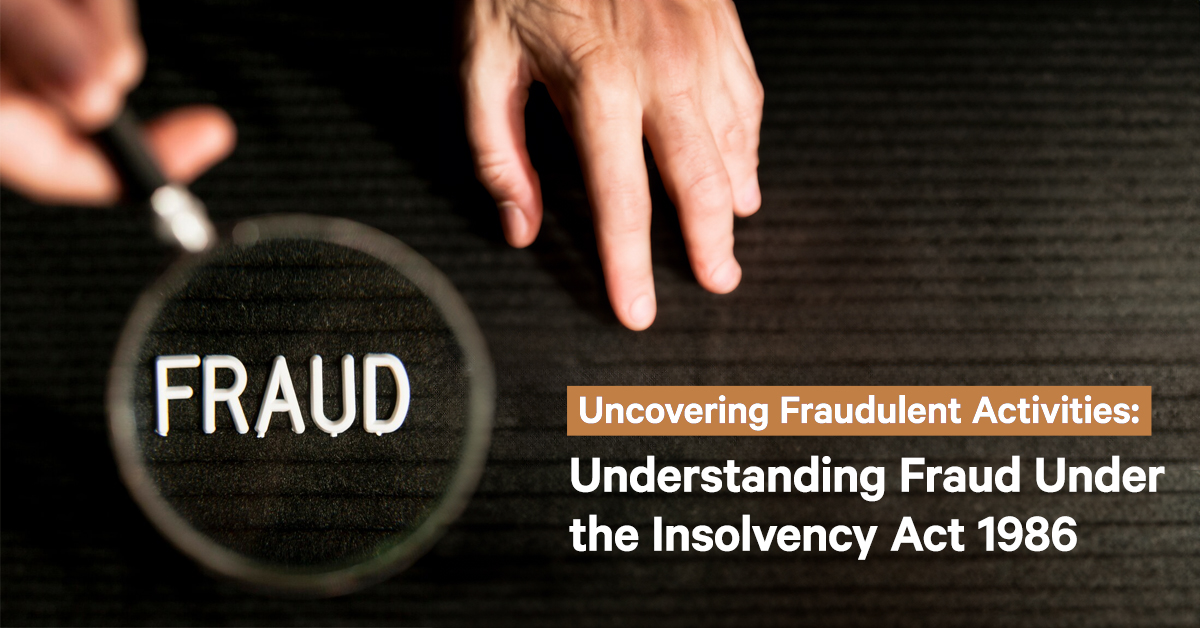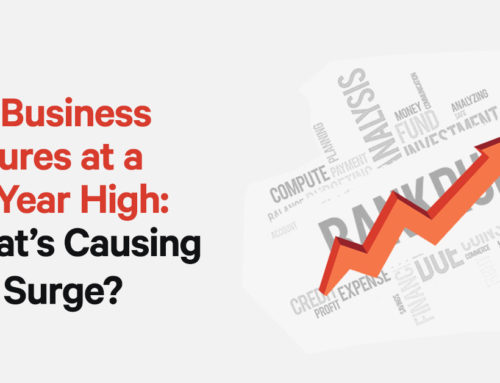When a company enters into liquidation, it becomes more likely that cases of fraudulent trading might become known. The activities of a business are investigated once it enters into liquidation and as such, if the directors of a business have acted in an improper manner then this will come to light. Acting fraudulently deliberately is a criminal offence as per the Insolvency Act 1986 and as such is a very serious matter. There are severe penalties that can be applied to a company who have been found to have acted fraudulently, there can also be sanctions applied on directors. As such, businesses must be aware of what constitutes fraudulent activity and understand what they need to avoid to avoid having severe penalties apply to them. This article will talk in more detail about Fraud Under the Insolvency Act 1986 and provide more information on the ramifications of it.
Uncovering Fraudulent Trading
If a company finds itself in hard times and as such enters into liquidation, then the office-holder (who is usually an insolvency practitioner or a liquidator) needs to carry out an investigation on the business in order to better understand why it has failed. After that it is responsible for reporting findings to a specialist team within the Insolvency Service.
The reason these investigations need to take place is so the public at large can be protected from directors who act unscrupulously. In other words, the government wants to try and stop directors who set up a business purely with the intention of deceiving and defrauding people.
When someone accepts the responsibility of being the director of a business, they accept statutory duties and as such, their priorities need to change in order to better align with them. One of these is that the interests of the creditors need to be prioritised at all times to minimise the chances of them suffering financial loss.
Limited Company Fraud
So, what are some of the most common examples of limited company fraud that exist? There are only a few director actions that can result in accusations of fraudulent trading and these include the following:
- Continuing to accept financial deposits and customer orders without having any intention of fulfilling any of those orders.
- Accepting credit from the suppliers of the business whilst having sufficient knowledge that the business is never going to be able to make the required repayments.
- Taking steps in order to purposefully worsen the financial losses of the company’s creditors.
- Purposefully continuing trading even though the company is clearly insolvent and will not become solvent again.
- Hiding the assets of a company or selling said company’s assets for less than what their true value is.
- Misappropriating company funds in order to benefit the director of the company personally as well as their family members and friends.
It’s worth noting that there is a difference between wrongful and fraudulent trading which lies predominantly in what the intentions of the director of the business were. If the director has sufficient knowledge of how their actions might impact the customers and suppliers but carries on regardless, this will be considered fraudulent trading.
The Difference Between Long-Term and Short-Term Fraud in a Limited Company
When it comes to fraud with a limited company, there is both long and short-term fraud. It is also important that you understand the difference between these two types of fraud.
Long Term Fraud
Long-term fraud occurs when an organisation is set up deliberately with the purpose of acting fraudulently. It may be the case that the directors of said company start by paying their suppliers on time but this is done with the intention of having creditors agree to supply higher levels of credit and then failing to repay.
Short-Term Fraud
This is where a business is set up with the right intentions and not as a means to commit fraud. As such, the company will be trading by the book for some time and will then start making larger credit orders but without the intention of repaying. They would also potentially create serious financial difficulties for their creditors too.
If one business becomes insolvent thanks to fraud then this can have a knock-on effect and result in a number of other businesses going insolvent down their supply chain. This ripple effect will impact other organisations, customers and suppliers, which is why fraud needs to be taken seriously.
The Implications of Fraudulent Trading on Company Directors
It’s important that fraudulent trading is clearly proven by the insolvency service which has been appointed to conduct an investigation into that company. There are serious ramifications which will apply to businesses that have been found guilty of wrongful trading and these include some of the following:
- Heavier fines
- Directors suffering a longer term of disqualification (up to 15 years)
- A higher level of personal liability for the debts of a company
- A prison sentence that could be up to 10 years
There are also going to be issues with the director as their reputation will be massively affected, which means if they look for a job once their business has been liquidated, they will struggle to get one. It’s worth noting that the insolvency company needs to be the one that proves wrongful or fraudulent trading.
Do You Need Help with Liquidation?
A lot of businesses have fallen on hard times recently and as such, there are more organisations which are going into liquidation. If this is you and you want to make sure you are acting in a way which doesn’t reflect wrongful or fraudulent trading, you should be sure to reach out to experts such as Leading UK who will be able to help you throughout the entire process. Our team of experts will sit down with you in order to discuss what your business does, what situation you currently find yourself in and what your best next steps forward are. If you have any questions or require any further information then do not hesitate to get in touch.






